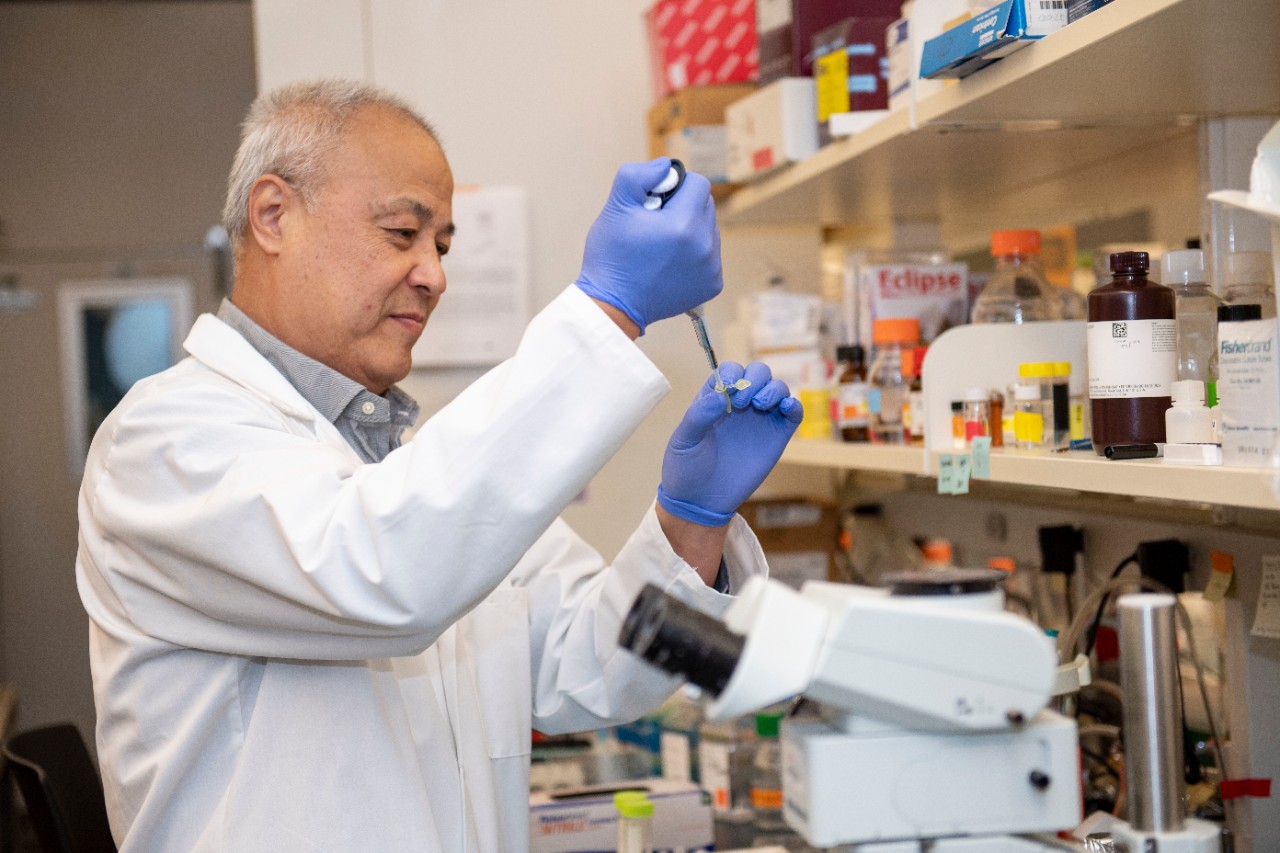A targeted therapy, currently being studied for treatment of certain cancers including glioblastoma, may also be beneficial in treating other neurologic diseases, a study at the University of Cincinnati shows.
The study, being published online April 6 in the journal EBioMedicine, revealed that the effects of a therapy delivery system using microscopic components of a cell (nanovesicles) called SapC-DOPS may be able to provide targeted treatment without harming healthy cells. This method could even prove to be successful in treating other neurologic conditions, like Parkinson's disease.
This study is led by Xiaoyang Qi, professor in the Division of Hematology Oncology, UC Department of Internal Medicine, and Ying Sun, research professor in the UC Department of Pediatrics and a member of the Division of Human Genetics at Cincinnati Children's Hospital Medical Center.

Xiaoyang Qi, professor in the Division of Hematology Oncology, UC Department of Internal Medicine, developed SapC-DOPS, a combination of a cell protein, SapC, and a phospholipid, DOPS, that assembled into tiny cavities can selectively target cells and deliver therapies while sparing all other unaffected cells and tissues. Photo credit: Colleen Kelley/UC Creative + Brand
This study shows its penetration into the brain is through a specific receptor and the lymphatic circulation system, which helps rid the body of toxins and waste.
"In this study, we showed that the nanovesicle was able to deliver the enzyme to the necessary tissues in animal models, especially the brain," Sun says. "This novel therapeutic approach corrects the deficiency of the enzyme in central nervous system cells and tissues and is efficient in reducing inflammation and neurological issues in animal models with [some types of] Gaucher disease."
"Our study presents a new targeted use for our nanovesicle and provides a new strategy for treating this type of Gaucher disease," Qi adds. "This is the tip of the iceberg when thinking about applications and it could mean promising treatments for other neurologic conditions.
"Although this study was focused on a rare disease, there may be implications for similar but vastly more common conditions such as Parkinson's disease where decreased activity of the same enzyme have been documented in the patients' brains. Without improvements in treatment, this type of Gaucher disease will remain lethal. This has the potential to improve patient care."
Featured photo credit: Colleen Kelley/UC Creative + Brand
This study was funded by the National Institutes of Health (R21NS 095047), the Cincinnati Children's Hospital Medical Center Research Innovation Pilot Award, the Gardner Neuroscience Institute Neurobiology Research Center Pilot Award and the UC Department of Internal Medicine. Qi and Sun cite no conflict of interest.






